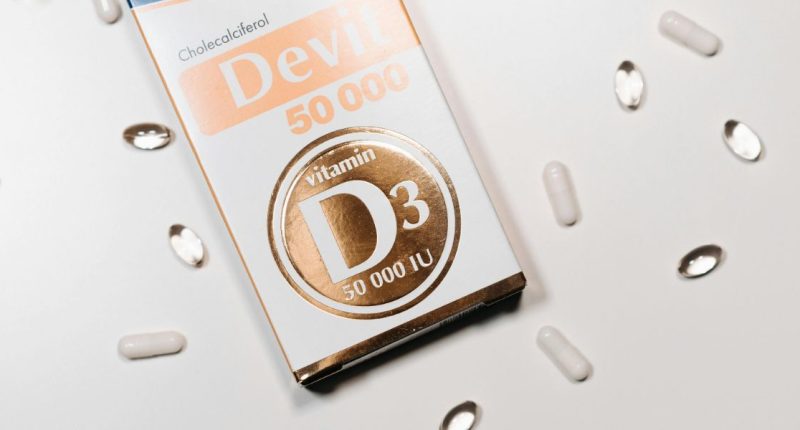- Personalised vitamin D3 dosing cut the risk of a second heart attack by around half in a clinical trial
- The biggest benefits were seen when vitamin D levels were actively monitored and brought up to a specific healthy range
- This approach looks promising, but it is not yet standard care and people should always speak to their doctor before changing supplements
Researchers at Intermountain Health in Salt Lake City looked at people who had recently had a heart attack and asked a simple question.
If you actively correct low vitamin D levels instead of handing out a standard supplement to everyone, can you stop more people having another heart attack.
In this large randomised trial, people whose vitamin D3 was managed towards a target blood level had about half the risk of a second heart attack compared with those who did not receive targeted vitamin D care.
The findings were presented at the American Heart Association Scientific Sessions in November 2025 and are already attracting attention, because earlier vitamin D trials that used a one size fits all dose did not show clear heart benefits.
Here, the difference was that blood levels were checked and doses changed until people reached a specific range that the team considered healthy for heart patients.
- Vitamin D2 may impair the more efficient virus-busting vitamin D3
- Impact of B vitamins on health and disease revealed in new research
How did the vitamin D3 plan work
The trial, known as TARGET D, included 630 adults who had suffered a heart attack within the previous month.
Most started with low vitamin D levels, below forty nanograms per millilitre, which is common worldwide, including in countries like the United Kingdom where many people spend most of their time indoors.
Participants were randomly split into two groups. One group received usual care with no structured vitamin D management.
The other group followed a targeted vitamin D3 plan. Their blood levels of vitamin D were checked and their supplement dose was adjusted to get them above forty nanograms per millilitre.
Many people in the targeted group needed relatively high daily doses, often around five thousand international units, much higher than typical over the counter recommendations. Blood tests were repeated, sometimes every few months, until people reached the target range, and then monitored annually.
Overall, there was no clear difference between the two groups when researchers looked at a combined measure of heart attacks, strokes, hospital stays for heart failure and deaths. However, when they focused specifically on repeat heart attacks, the picture changed.
- Type 2 diabetes risk not lowered by high-dose vitamin D supplements
- Impact of B vitamins on health and disease revealed in new research
People in the targeted vitamin D group had their risk of another heart attack cut roughly in half compared with those whose vitamin D was not managed in this way.
What this might mean for people in the United Kingdom
Low vitamin D is very common in the United Kingdom, particularly in autumn and winter, and in people with darker skin or limited sun exposure. Many people living with heart disease or diabetes already take vitamin D, but usually at a fixed dose that is never checked with a blood test.
This new study suggests that checking levels and aiming for a specific healthy range may be more important than simply taking a standard supplement that might be too low for many people.
That does not mean everyone who has had a heart attack should suddenly start taking very high doses of vitamin D3. This was one clinical trial, and the approach needs to be tested in larger and more diverse groups of patients.
Very high doses of vitamin D can cause problems in some people, especially if taken without medical supervision.
The researchers themselves stress that more work is needed before this becomes routine care.




